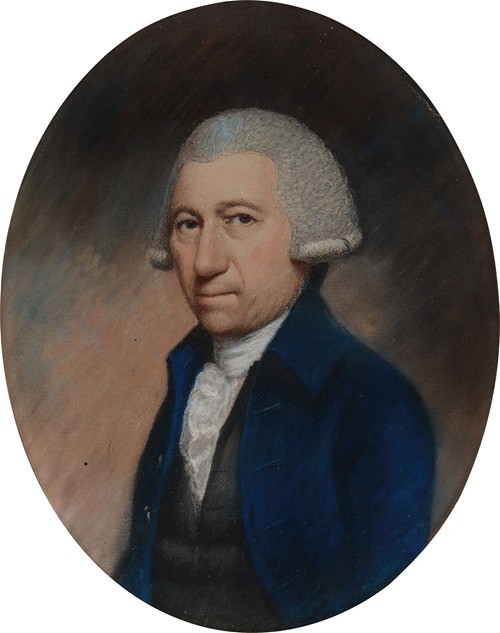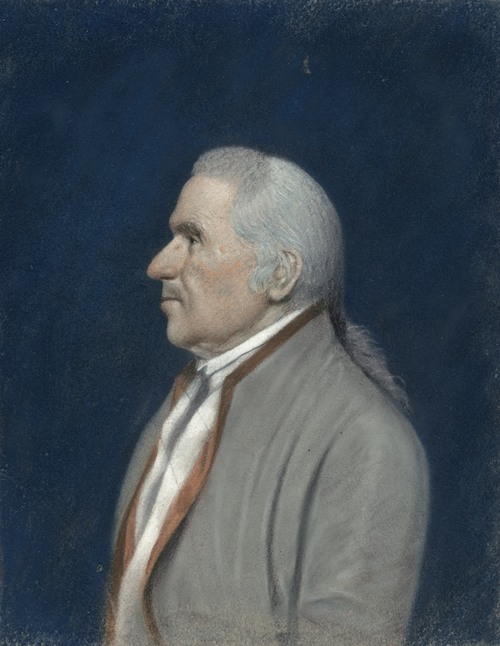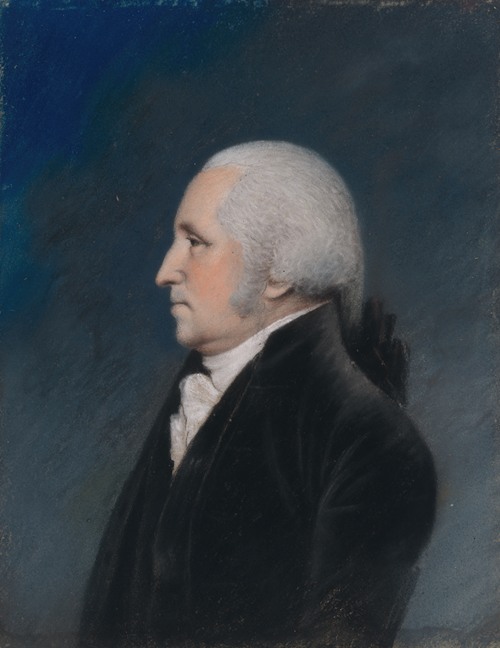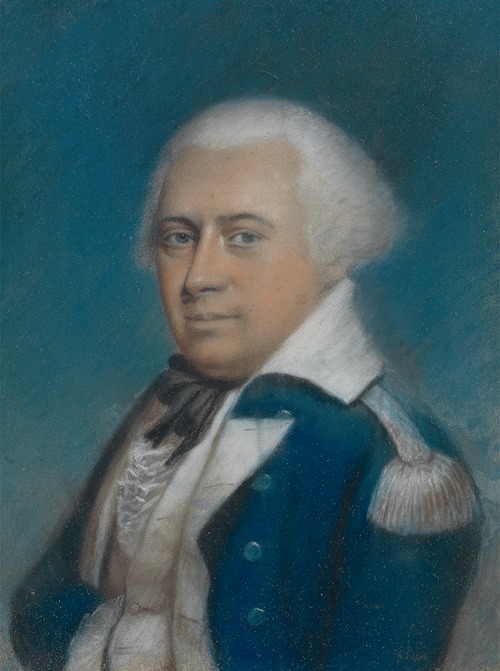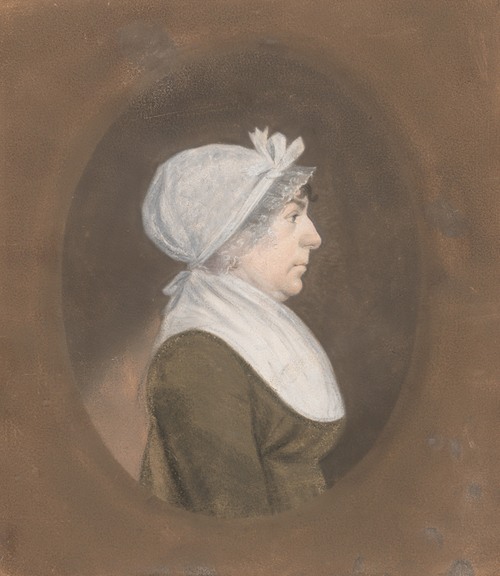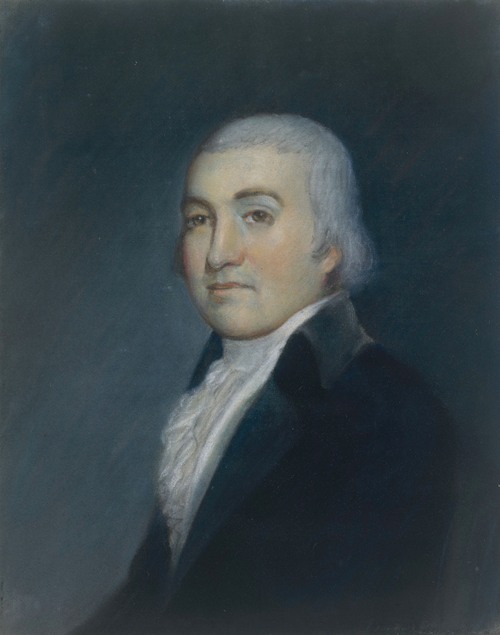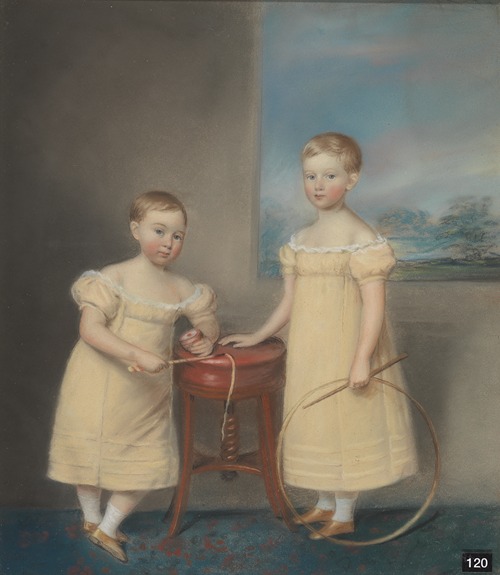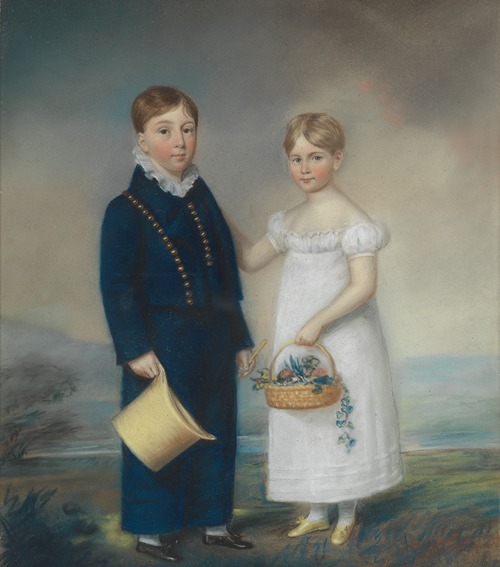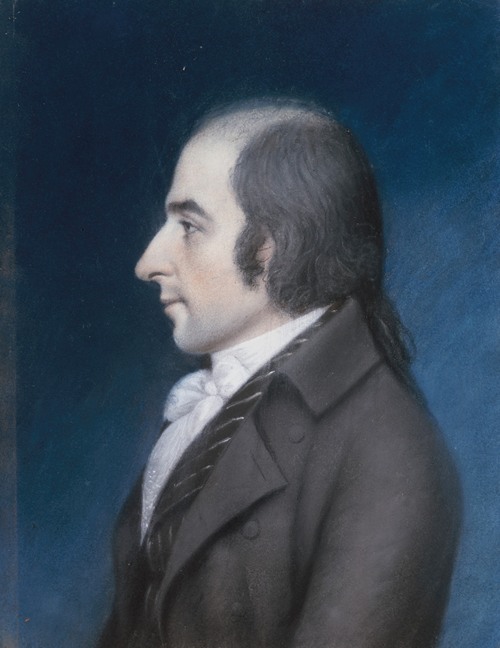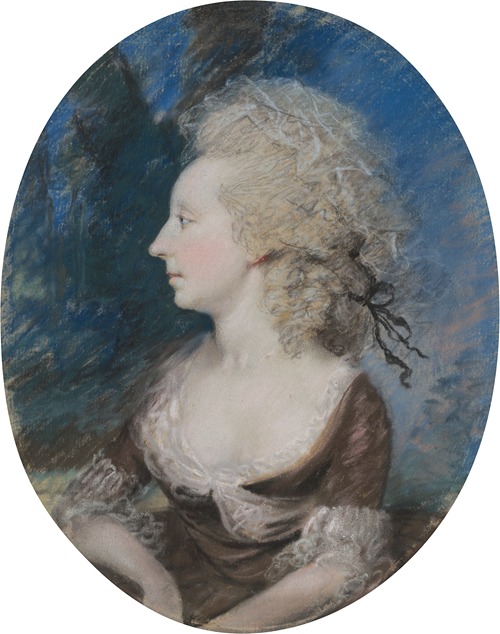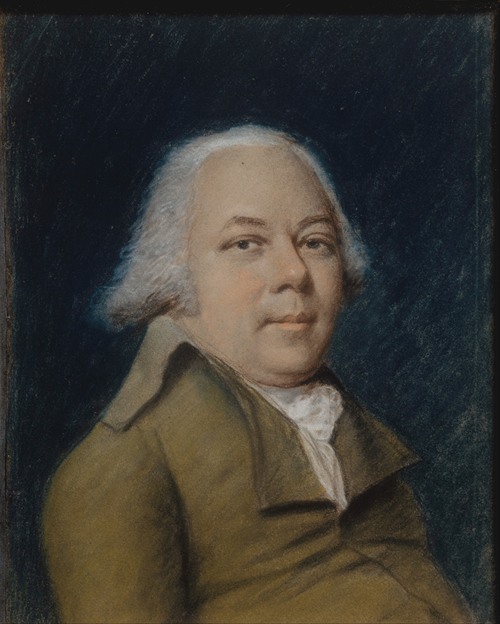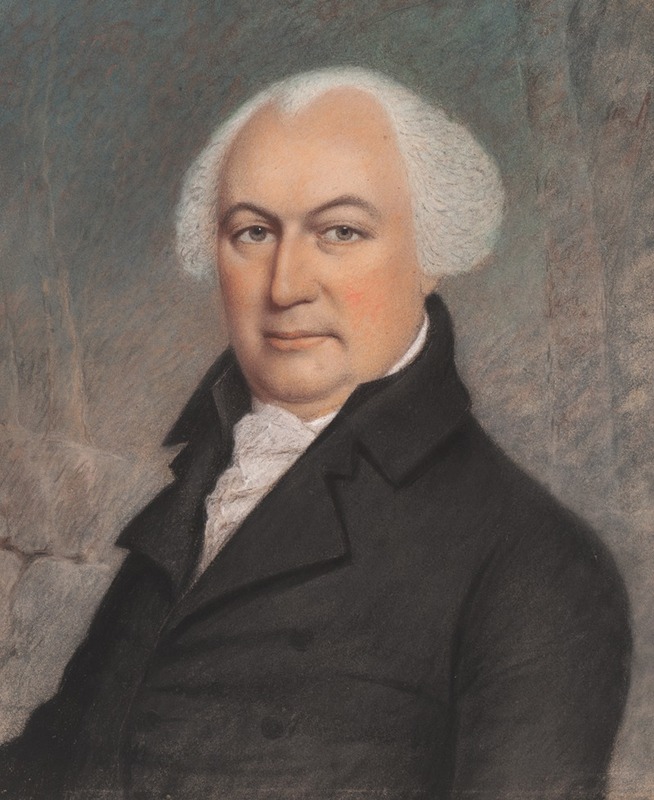
James Sharples was an English portrait painter and pastelist, who moved to the United States in 1794. He first exhibited at the Royal Academy in 1779.
James was first intended for the Catholic priesthood, but became an artist instead. Sharples headed a family of successful portrait artists, including his third wife Ellen Sharples. He had four children: George by his first wife; Felix Thomas Sharples from his second marriage (c. 1786- after 1823); and James Sharples Jr.(c. 1788–1839) and daughter Rolinda Sharples (1793–1838) with this third wife, Ellen. Felix, James Jr. and Rolinda joined the family enterprise at ages 17, 15, and 13 respectively. Before marrying Ellen Wallace, James had been active in Bristol, Liverpool and Bath, where he taught drawing. The family left for the United States in 1796, but, according to Ellen's diaries, their ship fell into the hands of the French, and for seven months the family spent time in Brest, near Cherbourg. Landing in New York, James quickly became popular for his small portraits in pastel and his miniatures. From 1796 to 1801 he worked mainly in Philadelphia and New York, securing portrait commissions. The family traveled throughout New England region as itinerant portrait painters, looking for work and making inexpensive copies from the originals portraits they had made of popular and well-known figures, such as George Washington and James Madison.
The Sharples family built both a reputation for accurate portraits and a modest fortune. As a viable alternative to the larger, formal oil portraits of Gilbert Stuart and Jonathan Trumbull, for example, their small-scale pastels made a major contribution to the growing Federal portrait industry.
After encountering problems with the lease of their house in Bath in 1801, the Sharples returned to England. The war between France and Britain delayed the family's return to the United States. Felix and James returned in 1806, and their parents and sister Rolinda followed in 1809. After James Sharples's death of heart trouble during an extremely cold winter in 1811, the family returned to England. Only Felix elected to remain behind.

